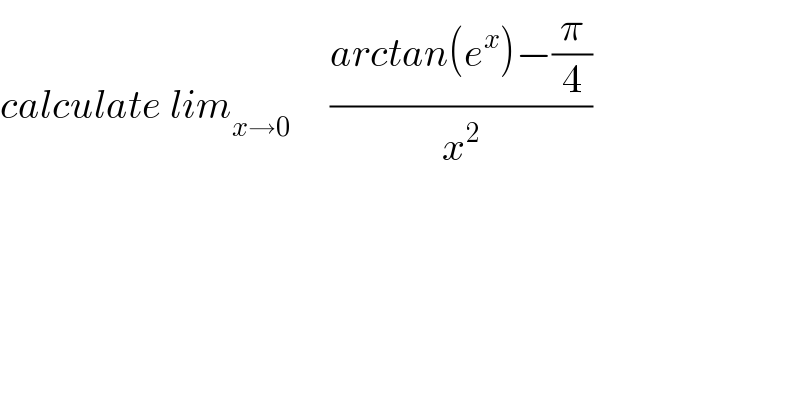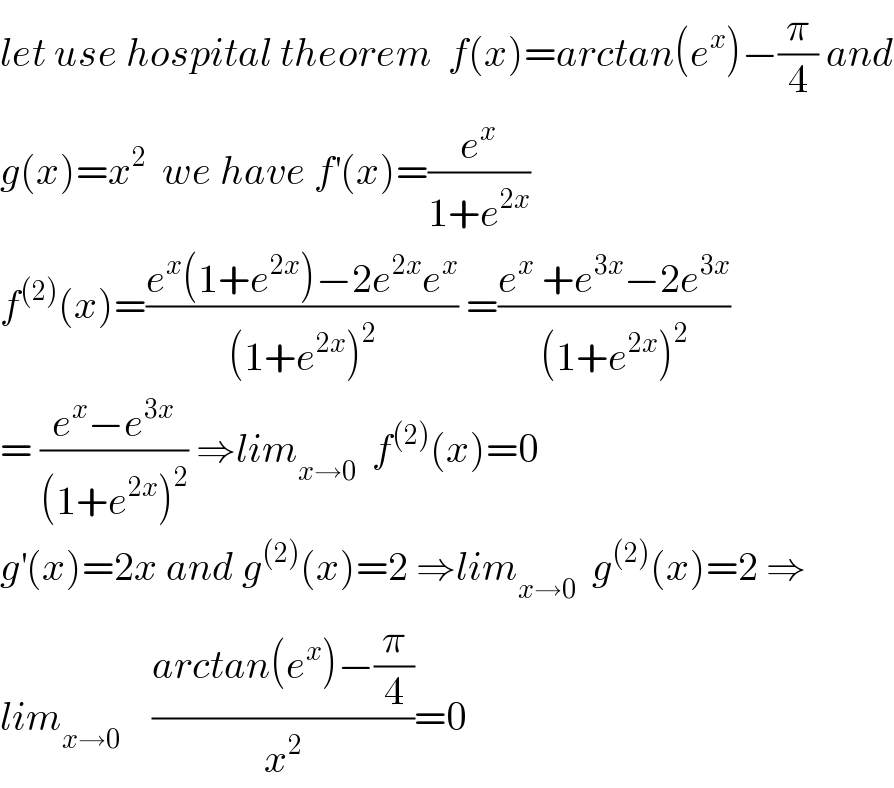
Question and Answers Forum
Previous in Relation and Functions Next in Relation and Functions
Question Number 72990 by mathmax by abdo last updated on 05/Nov/19

Commented by abdomathmax last updated on 19/Nov/19

Answered by mind is power last updated on 05/Nov/19

